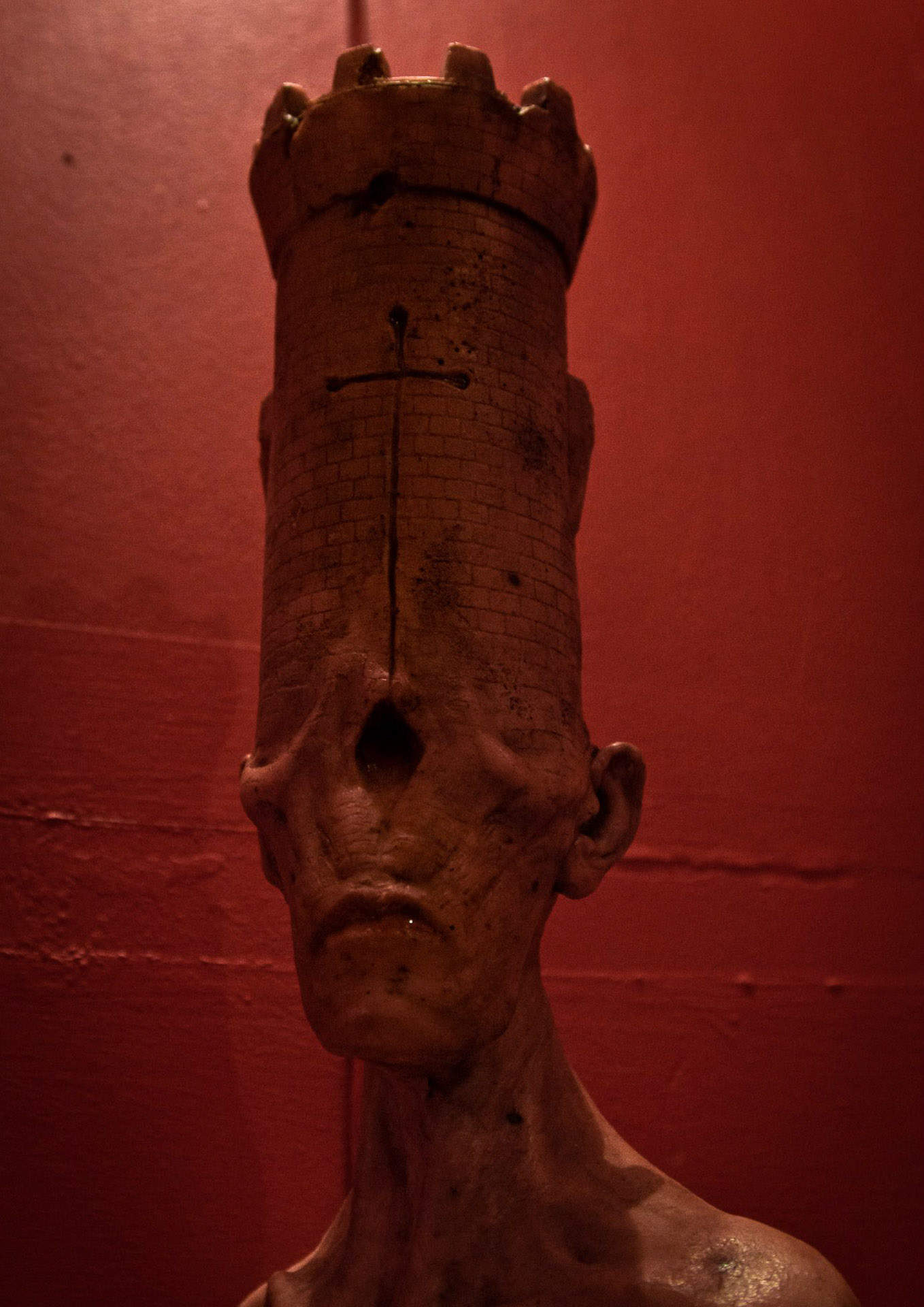Article from MIRROR Tricia Phillips
When Cliff Wallace was a kid he spent hours in his bedroom making ghouls and monsters – the more grotesque the better.
It’s no surprise then that he now makes his living doing special makeup effects for film and TV, creating blood, gore, dead bodies… and monsters.
“There’s no doubt it’s a niche industry,” he laughs. “But I still can’t believe my luck that I manage to spend hours of every day letting my imagination run riot.”
Tomorrow sees the national release of his latest film project, 28 Weeks Later, where he and his team did everything from turning actors into virus-infected zombies to creating dummies of people who were decapitated by a helicopter.
“It’s a very complex procedure these days,” says Cliff, 44, from the HQ of his own company, Creature Effects, in Uxbridge, West London. “It used to be enough to make monsters and dummies good enough for the camera alone, but now things are more sophisticated and they have to look good on the set.”
It’s hard work – one body replication can now take up to three or four weeks to create.
“The helicopter scene in 28 Weeks Later only lasts a few seconds but it took months of work,” says Cliff. “If we’re doing a dummy of an actual person we do a life cast of them and create a detailed mould. From this impression, we then make a clay mould and from that, we make a silicone rubber mould. We then work on the detail such as beards where we punch each hair individually. It’s very time-consuming.”
Dead bodies (including horses) for war movies, creatures from out of space, ghoulish puppets and prosthetics for actors with gruesome wounds are all on Cliff’s list of credits.
“I grew up loving horror films,” he explains. “Hammer horror movies were a favourite and I loved science fiction. I used to spend hours making plastic models of Dracula and Frankenstein.”
After school Cliff enrolled on a media studies course so he could work in film but he could never have imagined what was to happen.
“It was the early 80s, post-Star Wars but a big time for special-effects films such as Aliens,” he recalls.
“In order to be able to focus on the films I liked I would get my classmates to make monsters and creatures for my projects. I found myself falling into that side of things.”
After graduation Cliff took to his bedroom making his gruesome masks and then cooked them in his mum’s oven – much to her horror. “I started selling some of them at a friend’s stall in Covent Garden,” says Cliff. “One day, out of nowhere, I got a call asking me on a kids’ TV programme to show how they were made.”
Straight after the show, Cliff got a call from a company working on projects such as The Max Headroom Show and horror and science-fiction films.
“I met up with a bunch of people just like me and it was great,” he says. “I learned so much and my hobby became my career.”
Cliff studied anatomy and sculpture and worked all the hours he could on films such as Hellraiser.
But he says: “Sadly, in the early 90s there was a hideous slump and there were no films at all being made in the UK, let alone horror and science-fiction.
“I did everything I could to earn a living – including driving a cab. At one point I was about to start work full-time in the box office at Wembley Stadium when a chance of two weeks’ make-up effects work came up on a film. I took it. It was the best choice I could have made.”
He cobbled together enough freelance jobs to survive and in the late 90s Cliff and two pals set up Creature Effects purely to do a friend’s low-budget film.
“We based ourselves in an old hut at Pinewood Studios – there were even rabbits living in it,” he says. “After that project finished we squatted there for 18 months before we had to leave. That gave us enough time to find other projects and off we went.”
Work has included 28 Days Later, Black Hawk Down, Mission Impossible, Prime Suspect, Jonathan Creek and The Comic Strip.
Sadly his beloved monsters are less in demand these days.
“Many directors use computer-generated monsters nowadays but I still spend time creating outlandish creatures just for my own pleasure,” he says. “I usually end up doing my own stuff when everyone else has gone home. It may be my living but it is still my passion.”





















































